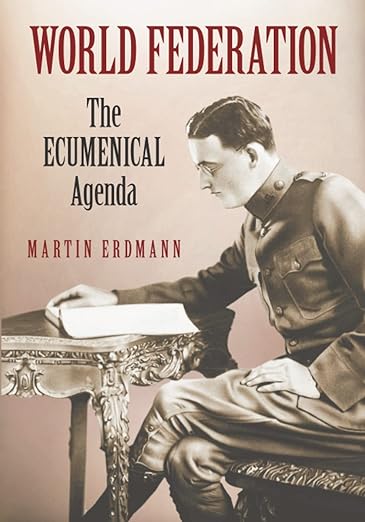A Brief Book Summary from Books At a Glance
by Benjamin J. Montoya, PhD
About the Author
Dr. Martin Erdmann studied theology at Columbia International University, SC (Master of Divinity), the University of Basel, Switzerland and the University of Aberdeen, Scotland (Master of Theology). In 1999, he was awarded a doctoral degree in Modern Church History at Brunel University London, England. The senate of the Károli Gáspár University, Budapest, Hungary, conferred on him a Habilitation degree (Dr. habil.) in Systematic Theology in 2017. In 1996, he founded Online Communication Systems, Inc. in Columbus, Ohio. For four years he headed up the New Testament department of the Staatsunabhängige Theologische Hochschule Basel (State-independent Theological Seminary), Switzerland. In his position as Senior Scientist at the University Hospital in Basel, he was involved in researching the ethical implications of Nanotechnology for five years. From 2003 to 2010 he was Assistant Professor of Biblical Studies (distance education) at Patrick Henry College, Purcellville, VA. Since 2003 he has directed the Verax Institute (Christian apologetics).
Introduction
For quite some time now, there has been a slow but steady movement toward a world federation of one government. This movement has sought to use the church and a vague sense of Christian ethics as a front to further their agenda. Although no one has ever achieved this larger task of a one-world government/federation, this book traces the development from early on. Why is this important?
These very beginnings are the eggs that hatched into what we now see in groups like the United Nations Organization. To understand these beginnings and the ideas that drive the theory that results in the practice will help us understand both our present political and theological situation as well as understand the future of both. Despite all these efforts of working toward a humanistic vision of the world, God is still sovereign, and his plan will prevail. Despite man’s never-ending attempts to rule this world for their own ends, God has already predicted how things will go in Scripture.
Table of Contents
Chapter 1 The Pretensions of Idealism
Chapter 2 The Pursuit of a World Federation
Chapter 3 The Problem of National Sovereignty
Chapter 4 The Promise of a New Social Order
Chapter 5 The Prospect of a Just and Durable Peace
Chapter 6 Conclusion
Summary
Chapter 1: The Pretensions of Idealism
The desire for a one-world government, or federation, is something that many have sought but never attained. The current movement towards a world federation finds its roots back to 1919 through 1945. During the Second World War, John Foster Dulles chaired the Commission of a Just and Durable Peace. Dulles was a well-respected attorney that people looked up to, so, in part, he seemed like a trustworthy individual to lead these efforts. As part of this effort, the Federal Council of Churches joined in to support world order and peace. Now, someone can certainly see how people would want something like world order and peace after dealing with two worldwide wars, seeing their grown sons die in battle, all kinds of food shortages and rationing, and much more that many of us cannot even imagine.
One of the primary underlying problems with this entire agenda is its pretension of promoting their idealistic view through a common socio-political and internationalist agenda through churches. Religion and politics have a long history of seeing one being used in the service of the other, and despite so many people in politics nowadays seem a great divide between religion and politics, people still try to use one to accomplish goals within the other. It would certainly be overly simplistic to argue that someone is even able to separate their religious views from their political views, like they might sort out their silverware drawer while doing the dishes, because our thoughts, be them religious or political, are quite intertwined. The problem, however, happens when people only use something like religion as a tool to accomplish a clear political agenda that is not truly about world order and peace. . . .
[To continue reading this summary, please see below....]The remainder of this article is premium content. Become a member to continue reading.
Already have an account? Sign In
